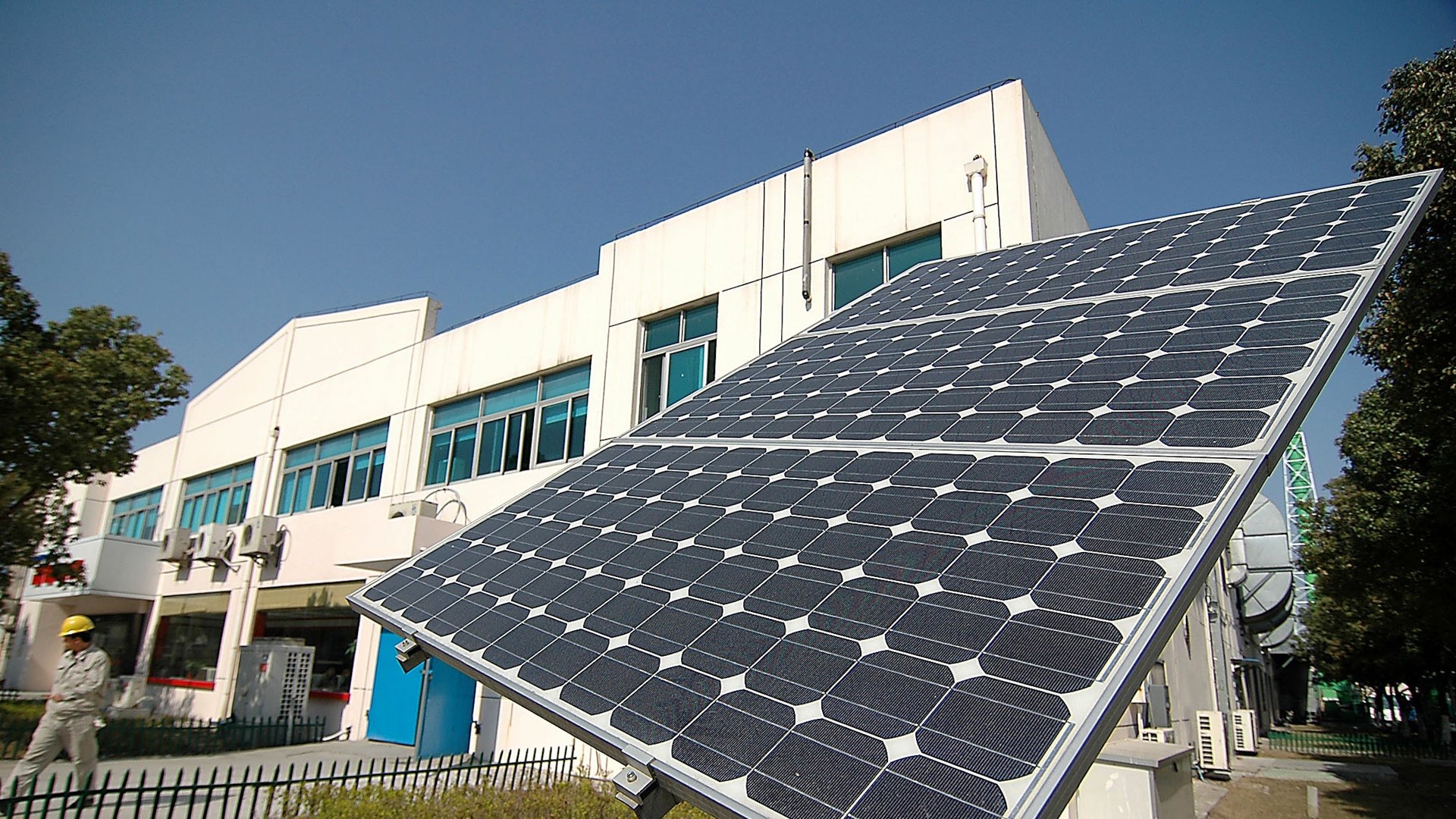Collateral damage from solar trade war as Chinese company shuts US factory
When the US subsidiary of German photovoltaic panel maker SolarWorld led a successful campaign to impose tariffs on its Chinese rivals last year, it portrayed the move as saving American jobs from rapacious competitors.


When the US subsidiary of German photovoltaic panel maker SolarWorld led a successful campaign to impose tariffs on its Chinese rivals last year, it portrayed the move as saving American jobs from rapacious competitors.
Today, one of those competitors, China’s Suntech, announced it will shut down a solar panel factory… and thus axe American jobs. The factory in Goodyear, Arizona will close on April 3.
Irony noted.
“Higher production costs exacerbated by import tariffs on solar cells and aluminum frames imposed by the US government, as well as global solar module oversupply, contributed to the facility’s closure,” Suntech said in a statement.
Since Suntech imported photovoltaic cells from its China factories for assembly in Arizona, those products were subject to a 35.97% tariff. The US Department of Commerce imposed the sanctions on November after it found that Chinese companies had illegally dumped cheap solar modules on the American market.
The shuttering of the two-year-old plant, though, most likely owes as much to Suntech’s dire financial situation. Once the world’s largest solar panel maker, the company today is struggling to survive $2 billion in debt, which includes a $541 million payment on convertible notes due this Friday, March 15. Suntech yesterday said a majority of its bondholders had agreed not to take action until May 15 if the company fails to make the March 15 payment. But there is speculation in the Chinese media that Suntech is preparing to file for bankruptcy.
However, the closure of the Arizona factory also highlights the unintended consequences of waging an old-fashioned trade war in a globalized industry like solar.
As Suntech, Yingli, Trina and other Chinese solar companies ramped up production between 2008 and 2011, solar panel prices plummeted and they quickly grabbed a large share of the US market. That in turn spawned thousands of jobs for solar installers in California, New Jersey and elsewhere, as homeowners took advantage of cheap panels and low-cost financing to go solar.
The Chinese companies’ dominance prompted SolarWorld to file an unfair trade complaint. It alleged that Suntech and its compatriots exploited low-cost Chinese government loans and cheap labor to sell solar panels below cost and deprive Americans of manufacturing jobs. Other big US photovoltaic panel makers like First Solar and SunPower declined to join SolarWorld’s complaint, though, perhaps because they themselves have outsourced much of their manufacturing and assembly overseas.
Suntech opened the Arizona plant in 2010 so it could easily supply solar panels to its biggest US market in neighboring California. At its peak, the factory produced 50 megawatts’ (MW) worth of solar panels. But after the tariffs took effect and its financial woes mounted, Suntech in December reduced the factory’s output to 15 MW and laid off 50 workers. Its closure in April will cost another 43 people their jobs.